8 highly-consequential SCOTUS rulings this term, explained

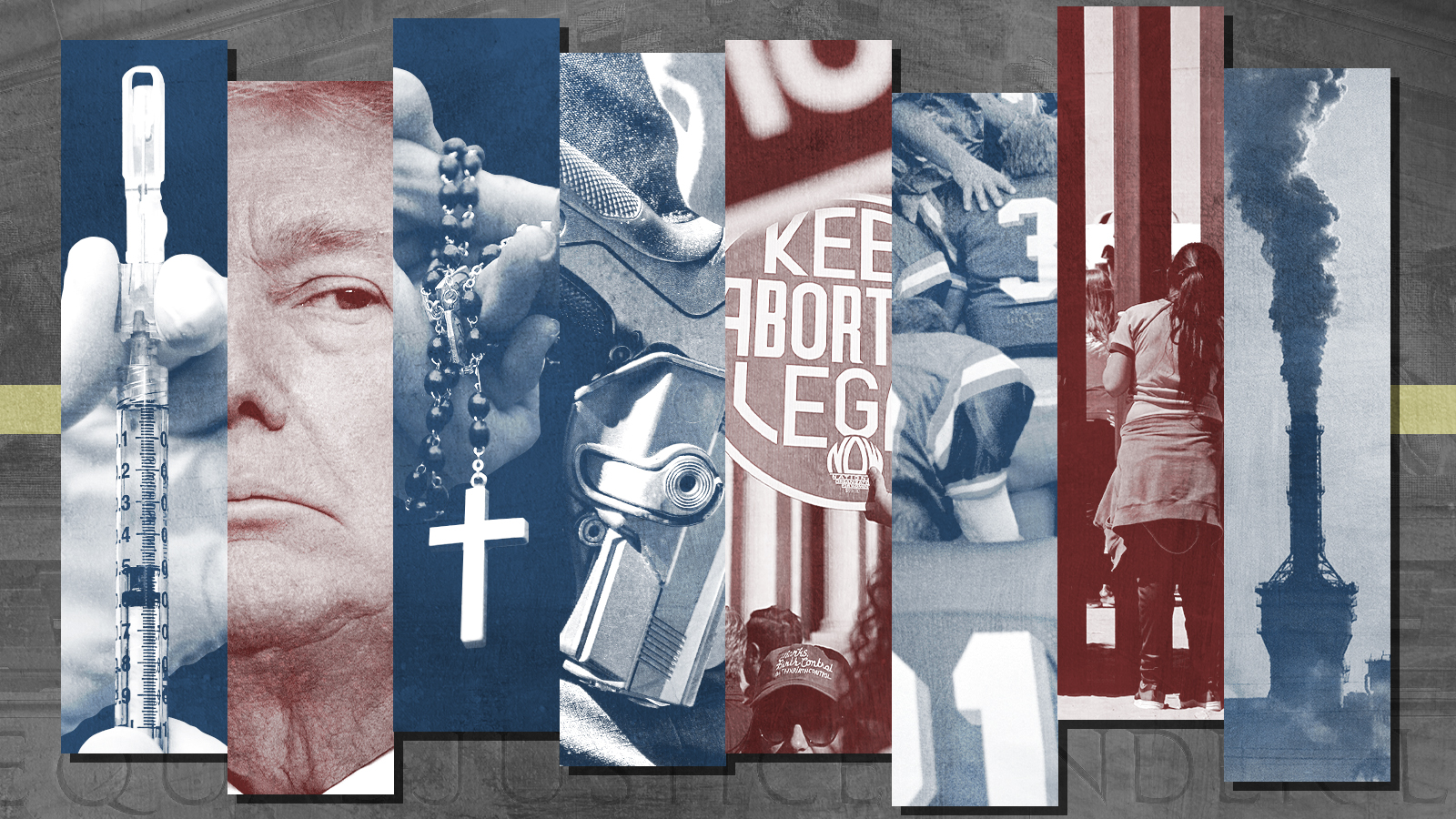
A free daily email with the biggest news stories of the day – and the best features from TheWeek.com
You are now subscribed
Your newsletter sign-up was successful
The Supreme Court's term wound to a close Thursday morning, bringing an end to a highly-consequential stretch of decisions on topics ranging from abortion to gun rights to immigration. Before the next round of deliberations begins in October, here's a quick look at some of the most notable rulings of the term, as well as the pros and cons of a select few.
Jan. 13: National Federation of Business v. Department of Labor — 6-3
In National Federation of Business v. Department of Labor, the court's six conservative members voted to block the Biden administration's vaccine-or-testing mandate for large employers. Under guidance from the Occupational Safety and Health Administration (OSHA), businesses with over 100 employees were to require that workers either receive a COVID-19 vaccine, or wear a mask and submit to weekly testing. The court ultimately ruled OSHA did not have the authority to implement such a mandate.
"Although Congress has indisputably given OSHA the power to regulate occupational dangers, it has not given that agency the power to regulate public health more broadly," the opinion claimed. "Requiring the vaccination of 84 million Americans, selected simply because they work for employers with more than 100 employees, certainly falls in the latter category."
The Week
Escape your echo chamber. Get the facts behind the news, plus analysis from multiple perspectives.

Sign up for The Week's Free Newsletters
From our morning news briefing to a weekly Good News Newsletter, get the best of The Week delivered directly to your inbox.
From our morning news briefing to a weekly Good News Newsletter, get the best of The Week delivered directly to your inbox.
Jan. 19: Trump v. Thompson — 8-1
Former President Donald Trump was unable to block the release of White House records to the House select committee investigating the Jan. 6 attack after the court ruled against him 8-1 in Trump v. Thompson. Justice Clarence Thomas, whose wife is believed to have meddled in efforts to overturn the 2020 election, was the lone dissent.
Trump had argued that his records, which the committee wanted to obtain for its probe into the Capitol riot, were protected by executive privilege.
June 21: Carson v. Makin — 6-3
In Carson v. Makin, the court ruled Maine must include religious schools in a state tuition program or else violate the First Amendment. Speaking for the majority, Chief Justice John Roberts said states aren't required to support religious education, but those that "choose to subsidize private schools … may not discriminate against religious ones," The New York Times summarizes.
The dissenting liberal bloc criticized the ruling for eroding the separation of church and state outlined in the Constitution.
A free daily email with the biggest news stories of the day – and the best features from TheWeek.com
Writing for The National Review, Dan Mclaughlin called Carson v. Makin a "huge victory "for the freedom of religious parents to educate their children in the school of their choice on the same terms as non-religious parents," while Slate's Mark Joseph Stern contended (as did dissenting justice Stephen Breyer) that the ruling has "the potential to dismantle secular public education in the United States."
June 23: New York State Rifle & Pistol Association Inc. v. Bruen — 6-3
In a 6-3 decision along party lines, New York State Rifle & Pistol Association Inc. v. Bruen ruled that the Constitution does in fact safeguard the right to carry a gun outside the home. At the center of the case was a New York state law requiring concealed carry permit applicants to prove they had a "special need" for a permit exceeding just basic self-defense. State gun owners then sued, arguing that such a provision made it nearly impossible to obtain a concealed carry license. The court ruled in favor of the gun owners, thus bringing about the "widest expansion of gun rights in a decade," per CNN.
"Because the State of New York issues public-carry licenses only when an applicant demonstrates a special need for self-defense, we conclude that the state's licensing regime violates the Constitution," Justice Thomas wrote for the majority. The dissent, meanwhile, led by the liberal Justice Breyer, argued that the court's decision "severely burdens" efforts to curb gun violence in the wake of a spate of mass shootings.
In its aftermath, The Wall Street Journal Editorial Board applauded the ruling, which it claims "vindicates the Second Amendment." New York University's Michael Waldman, meanwhile, argued in The Washington Post that the poorly-timed decision "will make it far harder to ensure public safety."
June 24: Dobbs v. Jackson Women's Health Organization — 6-3
In the highly-watched Dobbs v. Jackson Women's Health Organization, the court's conservative majority not only upheld a 15-week abortion ban out of Mississippi, but also ruled to overturn federal abortion protections as established under Roe v. Wade and Planned Parenthood v. Casey, undoing nearly 50 years of precedent and returning the issue of abortion to the states. Although shocking to many, the decision was somewhat expected, considering the draft opinion leaked in May.
The final majority opinion, penned by Justice Samuel Alito, ruled that Roe was "egregiously wrong from the start," with "exceptionally weak" reasoning and "damaging consequences." It's time to "return the issue of abortion to the people's elected representatives," he added. The minority opinion, written by the court's liberal bloc, was just as powerful: "With sorrow — for this court, but more, for the many millions of American women who have today lost a fundamental constitutional protection—we dissent."
The court "has finally reversed the monstrous injustice it worked in 1973," when seven justices "cast aside the laws of every state protecting unborn children from the violence of abortion, even though nothing in the text, original understanding, or history of the Constitution authorized them to do so," the National Review Editorial Board mused of Dobbs. But the consequences of the ruling are not that simple, countered the Los Angeles Times Editorial Board: "The Supreme Court is depriving people of the right to control their own bodies and allowing state politics to determine the existence of a fundamental liberty." The burden of the court's decision will surely "fall heaviest on those who already have trouble accessing healthcare," it went on.
June 27: Kennedy v. Bremerton School District — 6-3
The court was once again split on ideological lines in Kennedy v. Bremerton School District, ruling in favor of former high school football Joseph Kennedy, "who was suspended then not rehired after leading postgame prayers on the 50-yard line," The Week writes.
"The Constitution and the best of our traditions counsel mutual respect and tolerance, not censorship and suppression, for religious and nonreligious views alike," Justice Neil Gorsuch wrote in the majority opinion. Meanwhile, dissenting Justices Sonia Sotomayor, Elena Kagan, and Stephen Breyer worried that the decision would set "us further down a perilous path in forcing States to entangle themselves with religion."
June 30: Biden v. Texas — 5-4
On Thursday, the court ruled 5-4 that the Biden administration was free to end the Trump-era "Remain in Mexico" program, which required that asylum seekers wait in Mexico as their claims process played out. In the majority opinion, Chief Justice Roberts said the policy's end does not violate a 1996 migrant detention law. If Congress meant to require that those seeking asylum be returned to Mexico, "it would not have conveyed that intention through an unspoken inference in conflict with the unambiguous, express term 'may,'" Roberts wrote, as quoted by CBS News. The chief justice was joined by all three liberal justices, as well as Justice Brett Kavanaugh.
June 30: West Virginia v. Environmental Protection Agency — 6-3
In West Virginia v. Environmental Protection Agency, the court narrowed the EPA's ability to curb greenhouse gas emissions from power plants, arguing that "federal agencies need explicit authorization from Congress to decide issues of major economic and political significance," the Journal summarizes. The decision, which CNN notes restricts the EPA's ability to fight climate change, could also further "limit the authority of government agencies to address major policy questions without congressional approval," the Journal adds.
Writing for the majority, Chief Justice Roberts said that while capping emissions so as to transition the nation away from coal might be "sensible," "it is not plausible that Congress gave EPA the authority to adopt on its own such a regulatory scheme." A "decision of such magnitude and consequence rests with Congress itself, or an agency acting pursuant to a clear delegation from that representative body," he added.
But Justice Kagan, writing for the dissent, argued that the court had, with its ruling, actually appointed itself "the decision-maker on climate policy." "I cannot think of many things more frightening," she went on.
Brigid Kennedy worked at The Week from 2021 to 2023 as a staff writer, junior editor and then story editor, with an interest in U.S. politics, the economy and the music industry.
-
 6 of the world’s most accessible destinations
6 of the world’s most accessible destinationsThe Week Recommends Experience all of Berlin, Singapore and Sydney
-
 How the FCC’s ‘equal time’ rule works
How the FCC’s ‘equal time’ rule worksIn the Spotlight The law is at the heart of the Colbert-CBS conflict
-
 What is the endgame in the DHS shutdown?
What is the endgame in the DHS shutdown?Today’s Big Question Democrats want to rein in ICE’s immigration crackdown
-
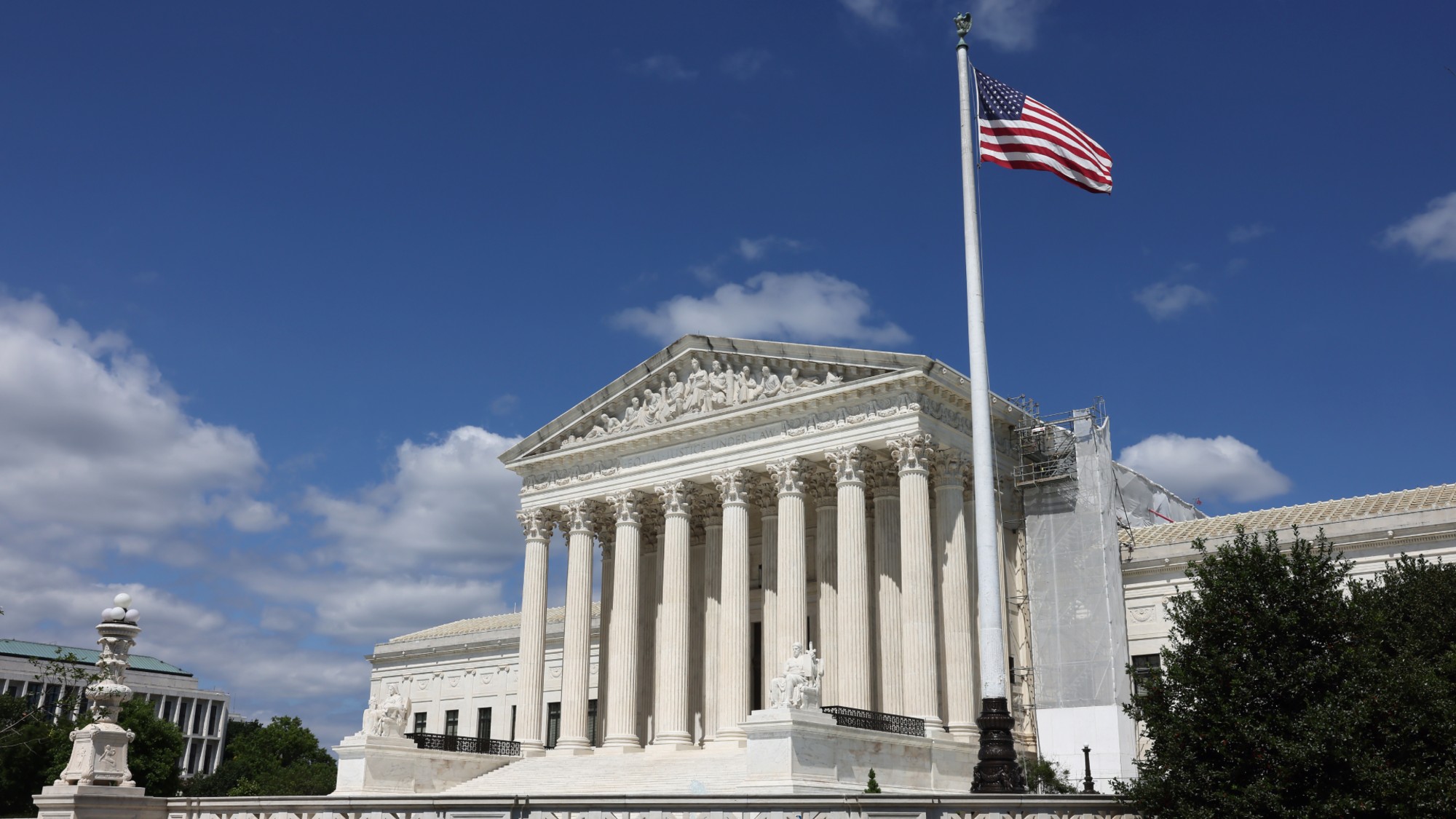 How far does religious freedom go in prison? The Supreme Court will decide.
How far does religious freedom go in prison? The Supreme Court will decide.The Explainer The plaintiff was allegedly forced to cut his hair, which he kept long for religious reasons
-
 The Supreme Court case that could forge a new path to sue the FBI
The Supreme Court case that could forge a new path to sue the FBIThe Explainer The case arose after the FBI admitted to raiding the wrong house in 2017
-
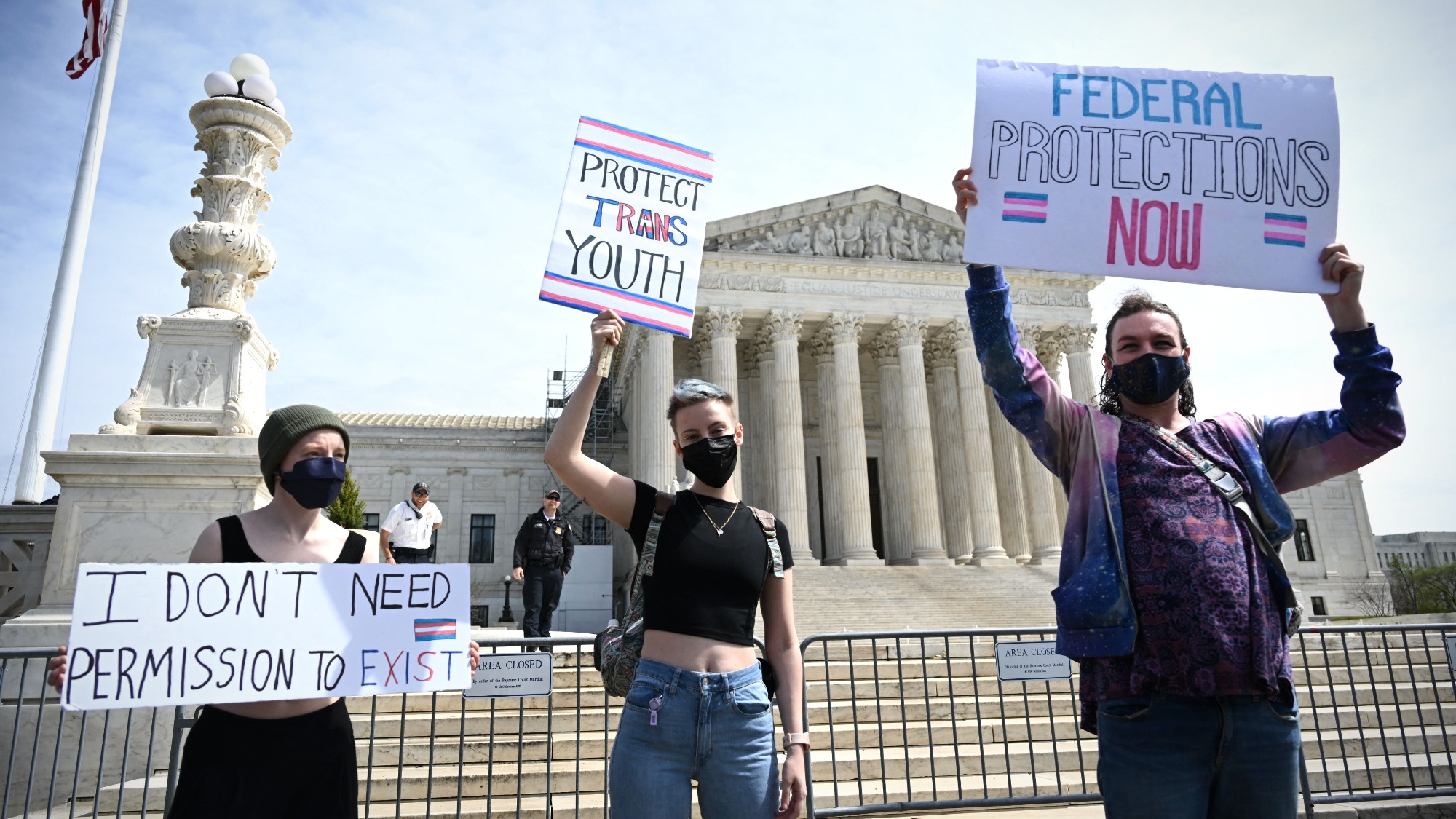 Supreme Court to weigh transgender care limits
Supreme Court to weigh transgender care limitsSpeed Read The case challenges a Tennessee law restricting care for trans minors
-
 Supreme Court wary of state social media regulations
Supreme Court wary of state social media regulationsSpeed Read A majority of justices appeared skeptical that Texas and Florida were lawfully protecting the free speech rights of users
-
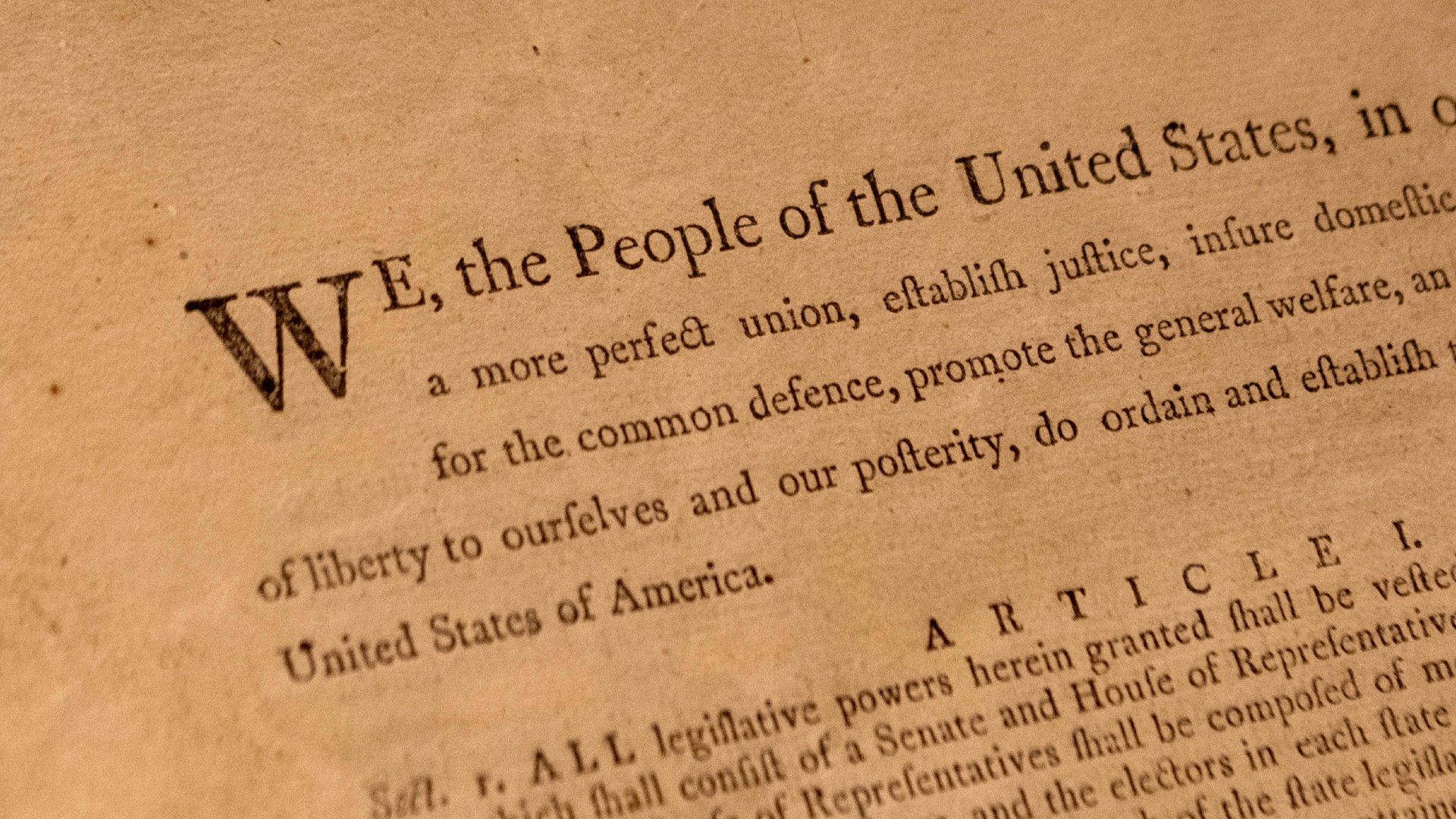 The pros and cons of a written constitution
The pros and cons of a written constitutionPros and Cons Clarity no substitute for flexibility, say defenders of Britain's unwritten rulebook
-
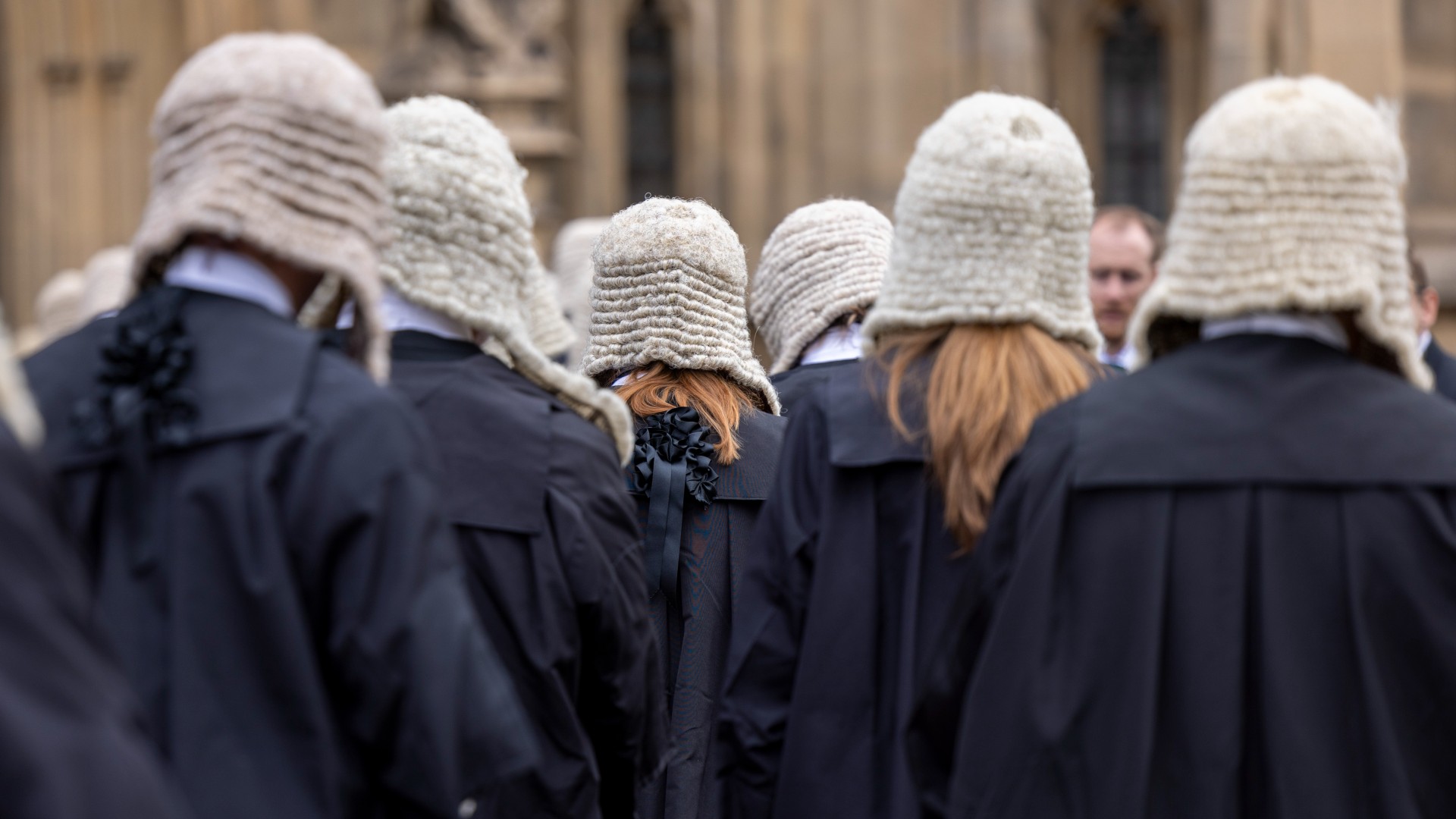 Judges allowed to use ChatGPT to write legal rulings
Judges allowed to use ChatGPT to write legal rulingsSpeed Read New guidance says AI useful for summarising text but must not be used to conduct research or legal analysis
-
 Pros and cons of the Rwanda deportation policy
Pros and cons of the Rwanda deportation policyPros and Cons Supporters claim it acts as a deterrent but others say it is illegal and not value for money
-
 Is the Comstock Act back from the dead?
Is the Comstock Act back from the dead?Speed Read How a 19th-century law may end access to the abortion pill
